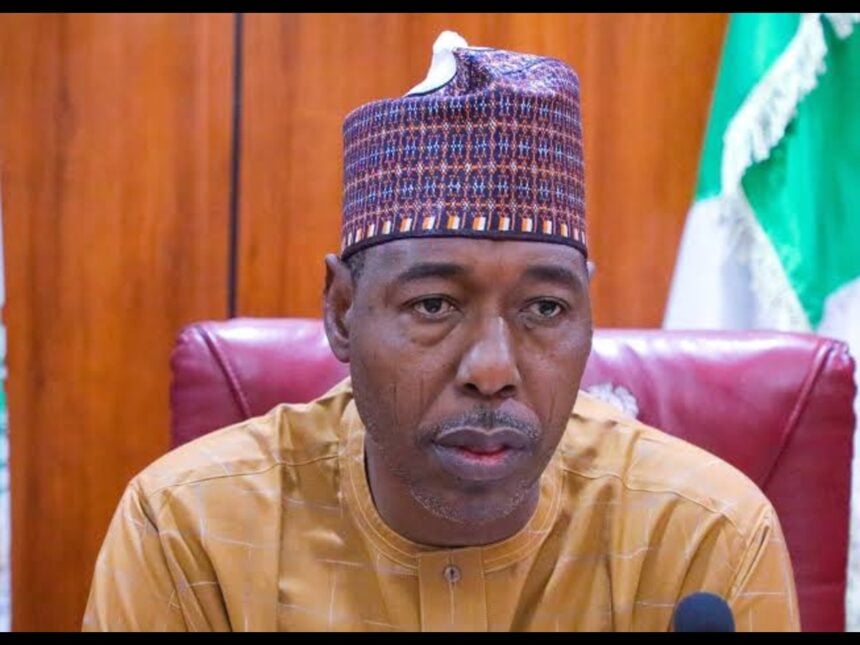Governor Babagana Zulum of Borno State has warned against negative narratives about the state’s post-insurgency recovery efforts, calling for a more constructive and fact-based conversation around the progress made so far.
Speaking at a town hall meeting organised by News Central in Maiduguri on Thursday, Zulum said the state has recorded significant strides in resettling Internally Displaced Persons (IDPs), restoring access to critical infrastructure, and improving basic services after more than a decade of Boko Haram insurgency.
“More than two million IDPs have so far been resettled back to their ancestral communities under our Reconstruction, Rehabilitation and Resettlement (RRR) programme,” Zulum said. “At the peak of the crisis, 22 local government areas were affected, but today all are accessible again.”
He noted that major roads linking Borno to neighbouring countries—Chad, Cameroon and Niger—have been reopened, facilitating the movement of people and goods and encouraging the return of farming activities across rural communities.
According to the governor, the improvement in access to farmland has boosted agricultural production and contributed to stability in areas previously under threat. He added that the return of displaced populations has led to a reduction in crime and social issues such as theft and prostitution.
On education, Zulum said his administration had recruited over 3,000 teachers and implemented the minimum wage for civil servants to improve the quality of public education. He also noted the construction and rehabilitation of several health centres, as well as the recruitment of health workers to address manpower gaps in the healthcare sector.
To tackle youth unemployment, he said vocational training centres and high Islamic schools have been established across the state, providing young people with both religious and technical education.
Speaking on security, Zulum said while challenges remain in some areas, the overall situation has improved compared to previous years. He commended the Federal Government for supporting the state with additional personnel and equipment to respond to recent security threats and insurgency.
Commenting on the status of the Government Girls Secondary School in Chibok, which was closed after the 2014 abduction of schoolgirls, Zulum said the school has been reopened for four years and students are now sitting for WAEC and NECO examinations.
“This is a symbol of progress and resilience. It shows that peace and normalcy are gradually returning,” he said.
Zulum urged stakeholders, including the media, to approach the state’s recovery narrative with a sense of responsibility.
The town hall meeting brought together government officials, civil society representatives, traditional rulers and members of the public to reflect on ongoing recovery efforts and discuss the way forward.
ALSO READ TOP STORIES FROM NIGERIAN TRIBUNE
WATCH TOP VIDEOS FROM NIGERIAN TRIBUNE TV
- Relationship Hangout: Public vs Private Proposals – Which Truly Wins in Love?
- “No” Is a Complete Sentence: Why You Should Stop Feeling Guilty
- Relationship Hangout: Friendship Talk 2025 – How to Be a Good Friend & Big Questions on Friendship
- Police Overpower Armed Robbers in Ibadan After Fierce Struggle






